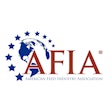
Many pet food manufacturers have the impression that as long as you follow the rules, you are immune to outside challenges. Yes, compliance with the labeling regulations of the US Food and Drug Administration (FDA) as well as the models of the Association of American Feed Control Officials (AAFCO) go far in protecting a company from actions initiated by federal or state officials. However, other forces are often in play. Competitors will often scrutinize labels and issue a legal challenge if it sees something that it deems unfair, and consumer advocate groups may also make public assertions of false and misleading labeling claims despite compliance with the letter of the law.
Also common are legal claims against companies related to a faulty product; e.g., injury to animals eating an adulterated or otherwise unsafe pet food. However, recently there seems to be more legal activity related to what is said about a product rather than a defect in the product itself. Class action lawsuits against numerous companies using the word "natural" in labeling have been threatened in recent years, notwithstanding the fact that the labels may have been wholly compliant with AAFCO policy on the matter. Other threatened suits challenged use of the claim "made in USA" as false and misleading, even though the claim may have passed muster with state feed control officials. These suits were directed toward a wide variety of pet foods. However, a more recent class action lawsuit to be filed (not just threatened) goes after therapeutic pet foods specifically.
The complaint: a summary
According to the complaint, various manufactures of therapeutic pet foods, as well as retailers and veterinary service providers, are engaged in price fixing of dog and cat food formulations in the US, in violation of anti-trust and consumer protection laws. The allegation is that because these foods can be dispensed only under veterinary direction, a premium price is charged, despite the fact that the foods are comprised of ingredients common to all pet foods; i.e., they do not contain drugs or other substances of therapeutic benefit, and in fact are not required by law to be dispensed by this means. Thus, the value of the products is artificially raised, constituting a conspiracy to the detriment of consumers.
However, the allegations do not appear to fully comprehend the principles of veterinary nutrition, in that the whole idea is to use nutrients, not "drugs," to affect the disease process. The point of using therapeutic pet foods is to purposefully manipulate the nutrient composition of the food as a means to achieve these effects. For example, the levels of protein and phosphorus in a food can have a direct bearing on the mitigation of signs related to chronic renal insufficiency. Manipulation of the concentrations and types of fiber, fat and other nutrients can affect gastrointestinal, cardiac, dermatologic and other problems, as well.
Achieving the required nutrient levels to help in the disease process while maintaining nutritional adequacy can be a significant challenge, and requires the manufacturer to be very careful in formulation and its selection of appropriate ingredients that provide the desired nutrient composition. These factors, along with the need for supportive research to validate claims, certainly affect cost of production.
Irrespective of the fact that one company uses the term as part of its brand name, the allegation is true that there is no legal requirement to sell foods via "prescription" per se. However, FDA has made clear that it does not want to see these types of foods offered to the public unfettered. It has held this stance for decades, though only recently has its policy been put in writing.
As detailed in an earlier column (Petfood Industry magazine, July 2016), products intended for these purposes are "drugs" as defined by law, notwithstanding the fact that there are no xenobiotic drugs in the product as commonly understood. While not formally approved as drugs by FDA, the agency recognizes the clinical need for such products, and typically exercises enforcement discretion by allowing them to remain on the market as long as certain provisions are met. A key condition is that they are distributed only under a valid veterinarian/client/animal relationship.
The complaint: analysis and opinion
Is that necessary? It could be argued that as long as the product meets AAFCO standards for nutritional adequacy, there is minimal risk from consumption of these diets by healthy animals. However, in the agency's opinion, veterinary involvement is critical in the proper use of these products, as misdiagnosis could have detrimental effects. For example, while a low-protein diet may be appropriate for many animals with renal problems, it would be contraindicated in the case of a protein-losing nephropathy. A consumer whose pet has "kidney disease" is most likely not going to understand the distinction; thus, oversight by a veterinarian remains vital.
Some advocates have charged FDA as complicit in the conspiracy; i.e., that the manufacturers themselves persuaded the government to adopt this policy. I'm not aware of any evidence of that. They have also asserted that FDA is ignoring the law in these matters and should take strong action against therapeutic pet foods that are not formally approved as drugs. This is simply infeasible, so the only option would be to ban all distribution. In my opinion as a veterinary nutritionist, this would only serve to the detriment of all, including the pets these foods are striving to help.
For more insights by Dr. Dzanis


















